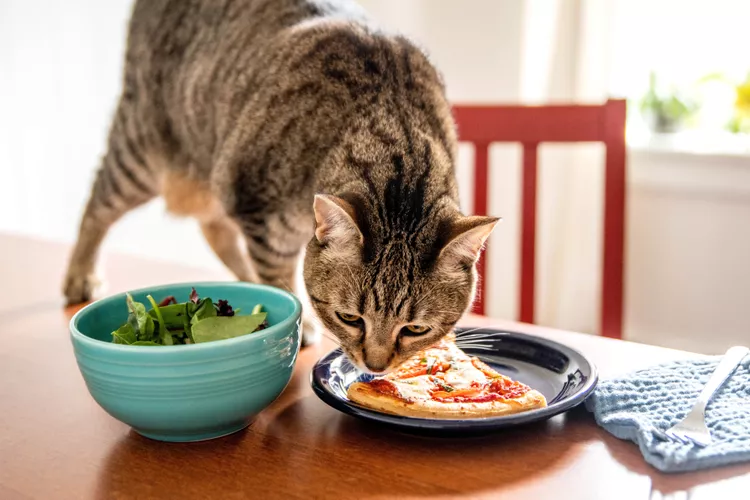
Your cat will display habitual behavior around mealtime when it is hungry, and many cats can be quite demanding when they want to be served. But cats aren't as motivated by food as dogs, so acting hungry all the time, begging, or whining for food between feedings may point to a medical issue.
Understanding how and when cats act hungry can help you know when to see your veterinarian and what to report.
Cats are smarter than you may think, and if you feed them around the same time every day, they'll know when it's mealtime. Meowing or crying and staring at you until you put food in its bowl are things a hungry cat is great at doing. No, your cat isn't starving, but it probably is hungry. Just like humans, a cat's empty stomach sends signals to its brain to tell it to eat and if you are the person that usually feeds it, your cat will make sure you don't forget its food.
If you keep your cat's treats in a specific place, and it sees you standing at that spot, then it may run over and start crying for a treat. This is even more likely to occur if you pick that bag or container up and give it a shake. Cats have excellent hearing and will come running if they hear a familiar, happy sound, especially if they are hungry.
Cats can easily jump onto a counter or table and snatch a piece of chicken or lick a stick of butter. Once they get a taste of something good that isn't in their food dish, it'll be a bad habit you'll have a tough time breaking. Cats are just like any other pet—and many people—who can't resist a tempting treat, so make sure you cover your food if you plan to leave it unattended.
Especially active cats and those who are getting inadequate amounts of food during mealtime may be more likely to steal food off the table. Increasing meal rations or feeding a food higher in calories may help keep your cat from counter-surfing if this is the case.
Cats who have had to compete or fight for food are more likely to consume their meals quickly or ravenously. Some cats even grumble or growl while eating and seem to swallow their food without chewing it. This is common with cats who have a history of being strays, feral, or who have come from a large litter of kittens where mealtime resulted in competitive eating if food was scarce.
Cats who have grown up or gotten into the habit of eating quickly may relax and learn that they need not worry about the availability of their food. After getting regular meals, most cats won't feel compelled to eat as quickly as they can, unless they truly have a medical concern that makes them feel constantly ravenous.
Vomiting is not uncommon to see in house cats. They groom themselves extensively so they often have a lot of fur in their digestive tracts, which can form a hairball. If a cat is not able to pass a hairball in its feces, then the fur will either come out when your cat vomits, or it will become stuck in its stomach or intestines. If a hairball is lodged in your cat, then it will vomit its food, since the food will be unable to digest. If you suspect your cat has a hairball or other item that is stuck in their gastrointestinal tract, take your pet to the veterinarian. X-rays will show whether your cat needs to have a swallowed item or hairball removed. This removal is often done surgically, but sometimes endoscopy can retrieve things from inside the esophagus or stomach.
Some cats vomit regularly after eating and their food is still intact or whole. This act of vomiting whole food soon after eating is called regurgitation and it usually occurs because the cat ate too quickly. Thankfully, regurgitation is easy to stop by slowing your cat down while it eats. Try spreading their food out on a cookie sheet or placing objects that are too large to eat inside your cat's food bowl. You can buy special food bowls with finger-like projections or nubs meant to make your cat work around them and therefore eat slower.
If your cat is crying for food and is gaining weight, then this is a sign to you that you should feed your cat less, despite what they are trying to tell you. Some cats, like some people, just really like food, and the more you feed them, the quicker they'll become overweight and prone to a myriad of medical issues. Diabetes, joint issues, cancer, and more are all more likely to occur in overweight pets. Most cats only require about one-fourth to one-half cup of dry kibble a day but this can vary depending on your cat's activity level and how many calories your cat food contains.
If you have a female cat who has not been spayed and could have had exposure to a male cat who has not been neutered, your cat may be hungry and gaining weight because she is pregnant. If this is the case, make sure you are feeding it a kitten formula to help provide maximum nutrition to the growing kittens inside your cat.
Cats that seem to always be hungry and never gain weight are often diagnosed with some sort of ailment. These include:
Thankfully, most cats just love to eat and their day revolves around naps and meals. As long as your cat's weight is stable, it isn't vomiting, having diarrhea, or acting strangely, it is most likely just a food-motivated feline.

Cute Pictures & Facts About Calico Cats & Kittens
Learn fascinating facts about calico cats, including photos, the genetics behind this color combination, and common folklore and traditions.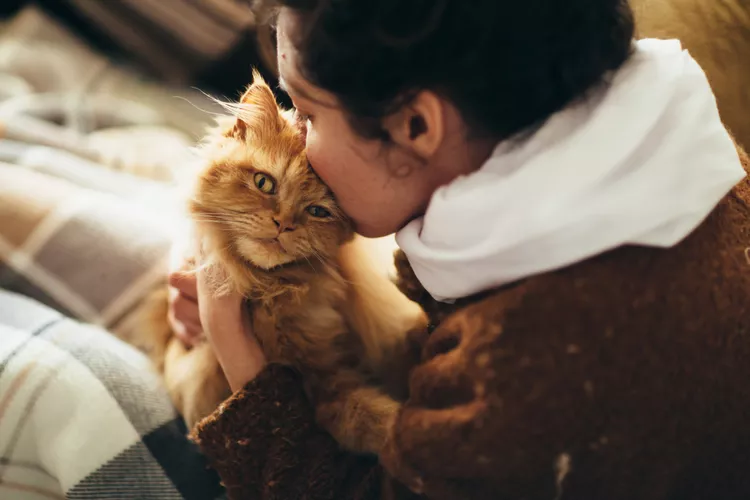
How to Prevent Cat Separation Anxiety During Vacations
Discover why cats develop litter box problems and cat behavior problems when you go on vacation and what you can do about it to help them.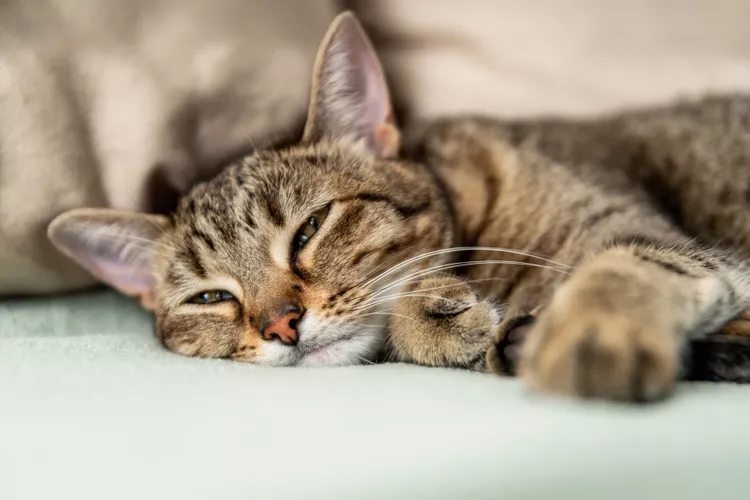
Cat Behavior Changes That Might Mean Something's Wrong
Cats' behavioral changes may indicate problems—or they may mean nothing at all. Explore causes of odd behavior and what to do about them.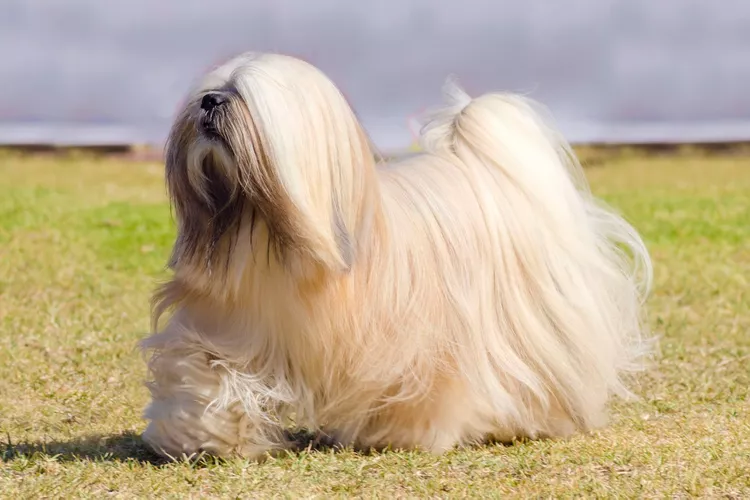
Lhasa Apso: Dog Breed Characteristics & Care
The Lhasa apso is an ancient breed from Tibet that was bred to be a watchdog. Learn about its history, health, exercise needs, and more.
Reasons Why Dogs Run Away and How to Stop It
Dogs can escape, especially if they’re bored and not properly contained. Here are some techniques for stopping your dog from running away.
Can Dogs Get Depression? How to Help Your Sad Dog
Can dogs get depression? Learn about the signs of depression in dogs and find out how to help your sad dog.
How to Stop Aggression in Dogs
Dog aggression can be a serious behavior issue for pet owners. Learn how to stop aggression in dogs before someone gets hurt.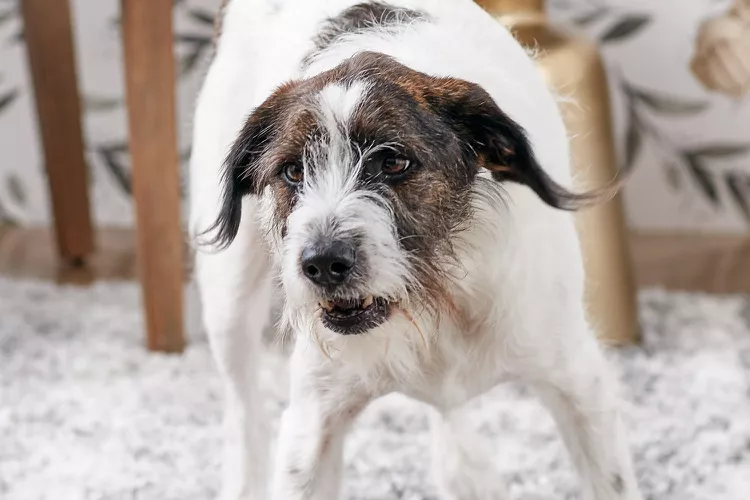
How to Stop Your Dog From Growling
A growling dog can soon become even more aggressive. Reduce the noise and potential for a dangerous situation with some of these techniques.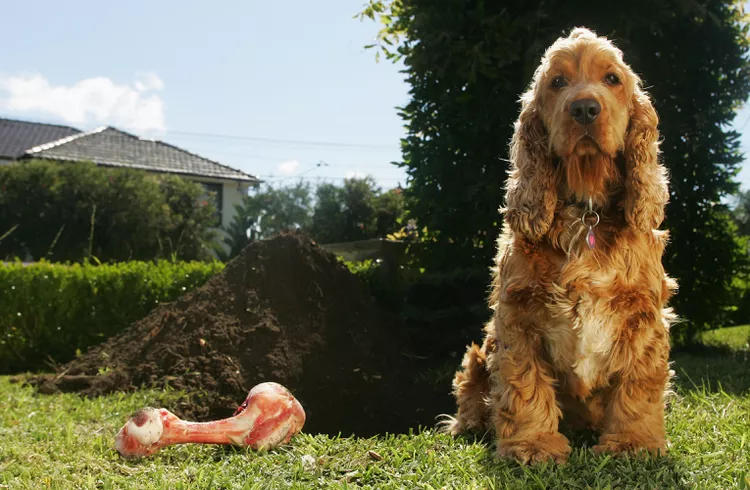
Why Do Dogs Dig Holes? How to Stop Your Dog from Relandscaping Your Yard
Dogs have been digging holes for centuries and for many reasons. Whether they’re bored or want to cool off in the dirt, here are the top reasons why dogs dig holes.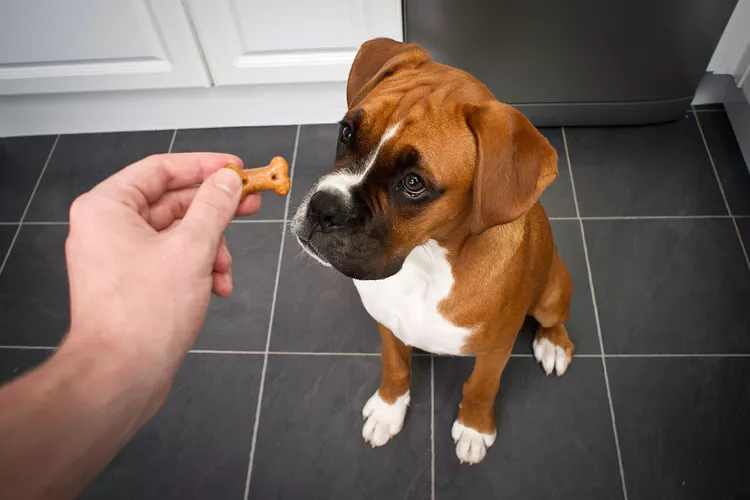
Dog Treat Varieties
Learn about the different types of dog treats on the market and decide which are best for your dog.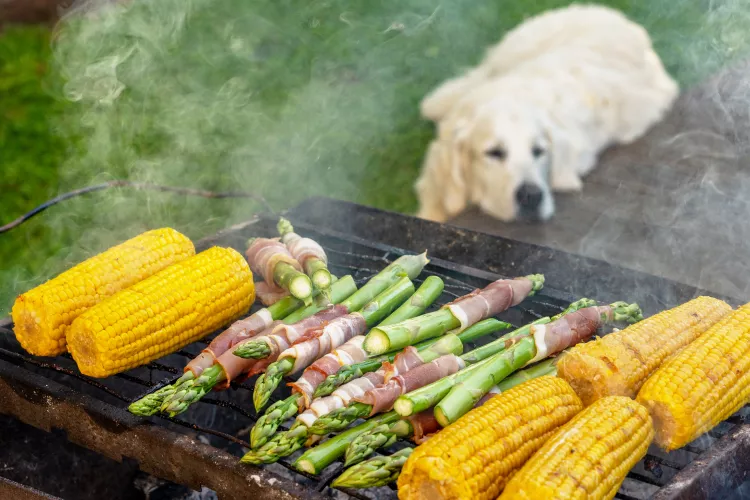
Can Dogs Eat Asparagus?
Dogs can eat asparagus, provided the vegetable is cooked plain and cut up for them. Seasonings, salt, and butter make it unhealthy for dogs.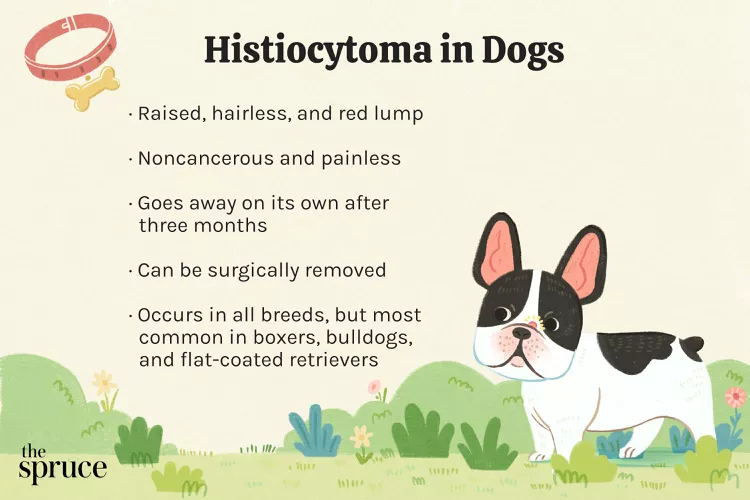
Histiocytomas in Dogs
A histiocytoma is a type of benign (non-cancerous) skin lump that usually affects young dogs. Learn the causes, treatment, and prevention.
Why Is My Dog’s Eye Swollen?
If your dog's eye is swollen, she may need veterinary attention. The inflammation could be caused by allergies, an injury, or even a tumor.
Common Bugs and Parasites Found on and Inside Dogs
Learn about common types of parasites in dogs. Find out how to treat and prevent parasites to keep your dog, your family, and yourself safe.
Exploring the Different Types of Pet-Friendly Beaches
Are you looking for pet-friendly beaches? Learn about the different types of pet-friendly beaches, their locations, and tips for visiting them with your pet.
10 Obscure, Little-known Canine Facts in Honor of National Dog Day
With National Dog Day upon us, it's time to celebrate everything about our favorite pets—even the weirder stuff. Here are 10 obscure facts about dogs you probably didn't know.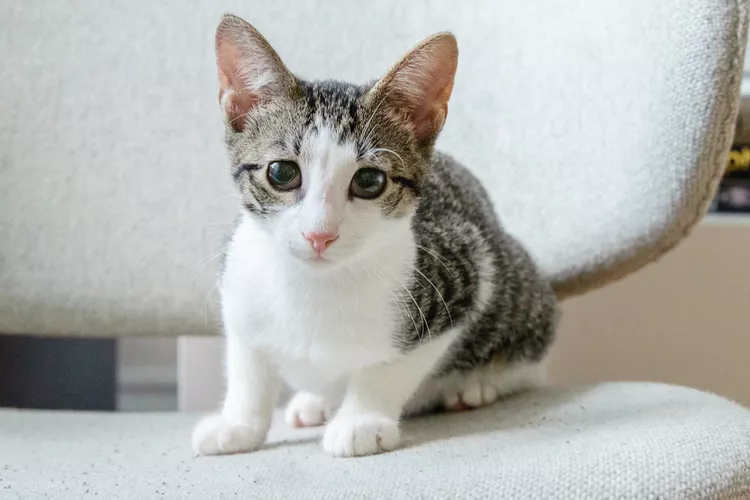
Kitten Development From 3 to 6 Months Old
Kittens grow and change a lot during their first year. Find out what happens between the ages of three months and six months old.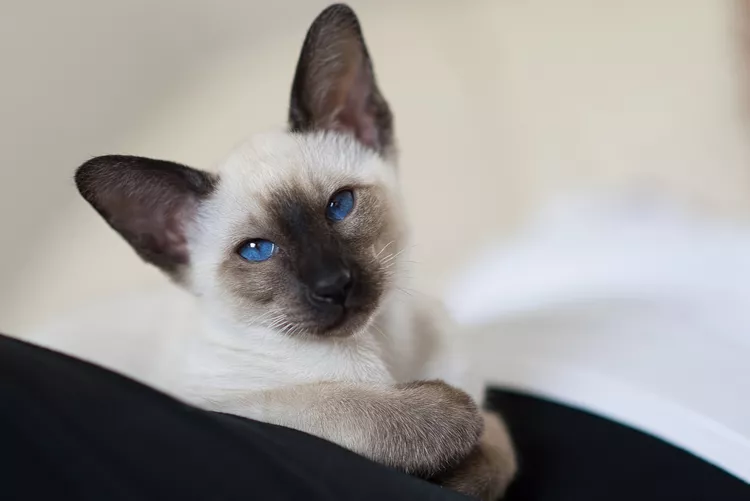
95 Siamese Cat Names
Our list of Siamese cat names has diverse and fun options to help you choose the ideal moniker for your elegant and lovable feline companion.
What to Buy for Your New Cat: A List of Essentials
Before you bring your new cat or kitten home, there are a number of things to collect or buy so your cat will feel welcomed like a family member.
The 6 Best Cat Nail Clippers of 2024 for a Safe Trim
Clipping your cat's nails can save your furniture and keep your kitty comfortable. We asked veterinarians for their cat nail clipper recommendations.